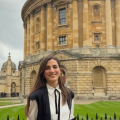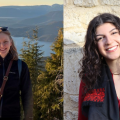Coronavirus welfare advice: A story about positive mindset
The University Counselling Service is producing a series of articles and podcasts to support students during the coronavirus pandemic. This time we offer advice on keeping a positive mindset during open books exams.
There is now something new to get your head around – ‘open book exams.’
Depending on how you feel about unexpected change, you might be saying to yourself ‘This in one more thing I just don’t need’ or ‘Why me? Alot of other people don’t have to do exams at all.’ On the other hand, you might be thinking, ‘Great, I don’t have to wear sub fusc and sit in Examination Schools… I can take the exam by myself somewhere quiet and comfortable, with something to eat and drink by my side.’ You won’t be surprised to know that your mindset – whether you think about this situation as annoying or unfair, or whether you choose to focus more of your attention on the unexpected advantages thrown up by the situation – will play an important part in how you prepare for and get through these exams.
Here is a story from a different context about how mindset isn’t something we are born with and just have; it is something that we can choose for ourselves.
One evening an old Cherokee told his grandson about a battle that goes on inside people. He said, "My son, the battle is between two wolves inside us all. It is a terrible fight and it is between two wolves. One is evil - he is anger, envy, sorrow, regret, greed, arrogance, self-pity, guilt, resentment, inferiority, lies, false pride, superiority, and ego." He continued, "The other is good - he is joy, peace, love, hope, serenity, humility, kindness, benevolence, empathy, generosity, truth, compassion, and faith. The same fight is going on inside you - and inside every other person, too." The grandson thought about it for a minute and then asked his grandfather, "Which wolf will win?" The old Cherokee simply replied, "The one you feed".
Our brains are incredibly plastic, which means that if we choose to think in a particular way, those neural pathways will grow stronger. It is the reason that in Buddhism, there are meditations on love, forgiveness, gratitude, etc, because by spending more time focusing on particular ways of being, we can actually ‘become’ that kind of person. And of course, the corollary is true; by spending less time thinking negative thoughts, those neural pathways become weaker. We are the only species who can proactively re-balance our own minds.
So, when approaching exams this term, choose to strengthen your mindset towards hope, determination and equanimity.
For a range of additional supportive resources, go to the Counselling Service webpages.
 Student story: Finding space for Kosovo at Oxford
Student story: Finding space for Kosovo at Oxford
 Oxford students shortlisted as McCall MacBain Scholarship finalists
Oxford students shortlisted as McCall MacBain Scholarship finalists
 Student story: My time at Oxford has been deeply transformative
Student story: My time at Oxford has been deeply transformative
 Welfare blog: Dealing with imposter syndrome
Welfare blog: Dealing with imposter syndrome
 Student story: Rowing sabbatical officer
Student story: Rowing sabbatical officer